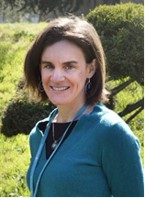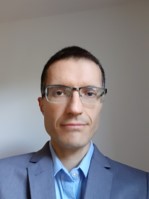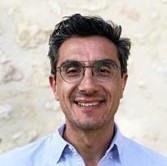Conférenciers invités
|



|
Charlotte Rivière
Assistant professor
Institut Lumière Matière
Université Lyon 1, France
Charlotte Rivière, had education in both material science engineering and biomedical engineering. After receiving a PhD in biophysics in 2005, she spent one year as an R&D engineer in a start-up company developing hybrids nanoparticles for biomedical applications (Nano-H). She then got a position of associate professor in 2006 in the biophysics group of the Institute of Light and Matter (ILM). Her research activities have covered a wide range of fields, from fundamental biophysics (mechanobiology, individual and collective cell migration) to biomedical applications (cell-biomaterial interactions, development of nano-therapies, microfluidic systems for cell biology). She now focuses on bioengineering and cancer physics and is actively involved in collaborative projects between physics, microtechnology, and cancer. Since 2021, she is hosted part of her time at the Research Center for Cancer of Lyon (CRCL), where she has just set up a new platform (µFab) to make microsystems more accessible for cancer biologists.
Titre de son intervention le mardi 27 juin à 14h00:
Agarose-based microsystems to control the mechanical and chemical environment of cells (Abstract)
Sébastien Bonhommeau
Assistant professor
Institut des Sciences MoléculairesUniversité de Bordeaux, France
Sébastien Bonhommeau received his PhD in Physics of Matter at the Paul Sabatier University in Toulouse, France (2006), working on the molecular spin crossover. He performed a two-year postdoctoral appointment at the synchrotron BESSY II in Berlin, Germany (2006-2008), and a one-year stay in Toulouse as assistant professor (2008-2009). Since 2009, he has been promoted associate professor in physical chemistry with particular emphasis in spectroscopy at the University of Bordeaux (UBx), France. He was awarded a CNRS/UBx chair of excellence (2009-2014) and the instrumentation prize of the French Physical Chemistry Division of the “Société Chimique de France“ (2020) for the development of tip-enhanced Raman spectroscopy (TERS). He has publihed nearly 50 articles in peer-reviewed international scientific journals, making important contributions in molecular magnetism and in the nanoscale chemical and structural characterization of biomolecules using TERS.
Titre de son intervention le mardi 27 juin à 9h20:
Tip-enhanced Raman spectroscopy for nanoscale chemical and structural characterization of biomolecules and biointerfaces (Abstract)
Sylvain Gabriele
ProfessorMechanobiology & Biomaterials group, Research Institute for BiosciencesUniversity of Mons, Belgium
Sylvain Gabriele is Associate Professor at the University of Mons, Belgium. After a Ph.D. in polymer physics (2006), he accepted a CNRS postdoctoral position at the Aix-Marseille University (FR) to study the confined migration of leukocytes in narrow microfluidic capillaries. In 2008, he accepted a postdoctoral position at Harvard University (USA) in the Disease and Biophysics group (Prof. Kevin Kit Parker) to study the propagation of mechanical forces in neuronal networks with magnetic tweezers. He was then appointed Chargé de Recherche FNRS (2009) and joined the faculty staff of the University of Mons as an Assistant Professor to lead the Mechanobiology & Biomaterials group, working on cell mechanobiology and new biomaterials. He was elected President of the Research Institute for Biosciences (UMONS) in 2016 and was awarded in 2021 the 2016-2020 Louis Melsens Prize by the Royal Academy of Science, Letters and Fine Arts of Belgium for outstanding achievements in physico-chemistry for life sciences.
Titre de son intervention le mercredi 28 juin à 9h00:
Sensing the curve and the spatial confinement: mechanobiology of epithelial tissues (Abstract)
|
|


 Chargement...
Chargement...